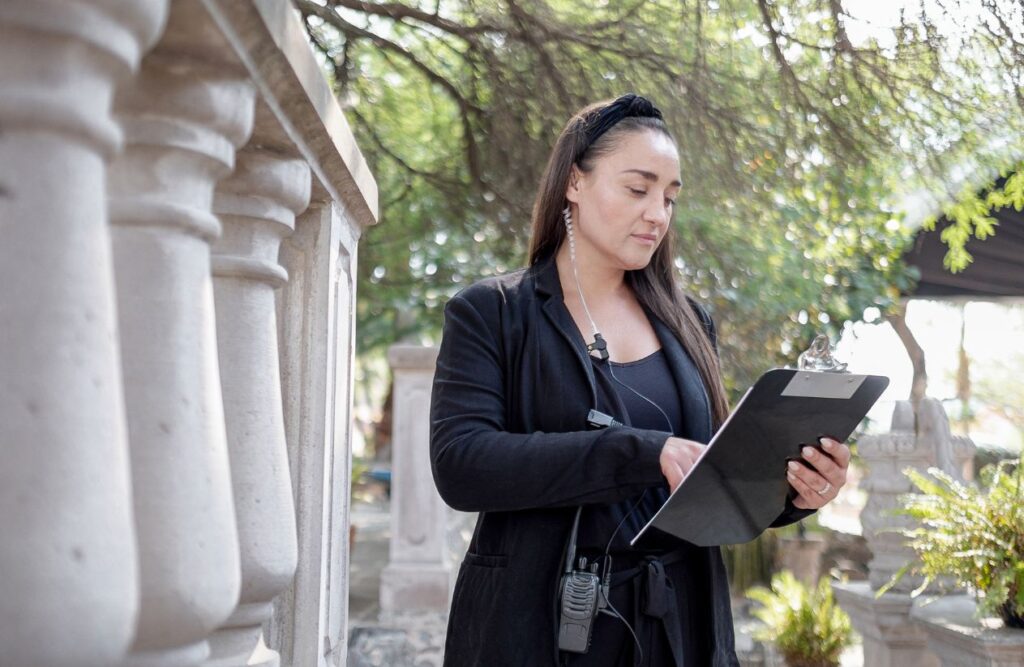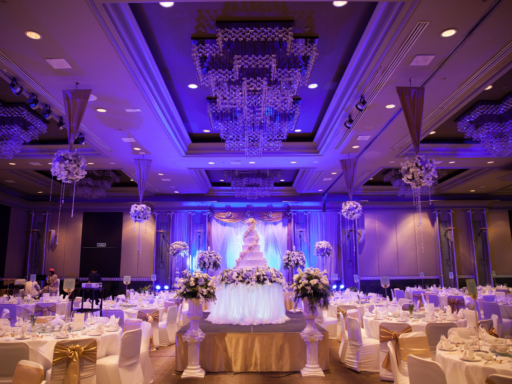Ever dreamed of seeing your creative vision transform into electrifying events, leaving guests buzzing long after the lights dim? Becoming an event planner isn’t just a job; it’s a passion for crafting unforgettable moments.
This comprehensive guide to becoming a successful event planner will equip you with foundational knowledge, practical skills, and strategies for lasting career success. We’ll navigate each crucial stage together, unraveling the complexities of bringing any gathering to life. Get ready to embark on a journey where every detail matters, every connection counts, and modern tools can certainly smooth your path.
Understanding the Core: The Foundations of Event Planning

Before you can orchestrate a grand event that captivates everyone, it’s essential to lay down a rock-solid foundation. Think of it as mapping your destination before you hit the road.
Defining Purpose & Vision: The “Why” Before the “How”
Every truly successful event begins with a crystal-clear objective. What’s the real reason this gathering is happening? Without a defined purpose, your planning efforts can quickly feel like trying to hit a moving target. It’s not just about booking a venue or a band; it’s about creating an experience with a soul.
To solidify your event’s identity and ensure every decision aligns, ask yourself these fundamental questions – the “5 W’s” of event planning:
- Why? What’s the ultimate goal? (e.g., launch a product, celebrate an anniversary, raise funds, connect professionals).
- Who? Who is the target audience you want to attract?
- What? What kind of event is it? (e.g., formal gala, casual concert, intimate workshop, large conference). What’s the core message or theme?
- When? What’s the ideal date and time? Consider seasonality, holidays, and audience availability.
- Where? What type of location best suits the “why” and “who”?
Holding onto these answers will serve as your guiding star, ensuring every subsequent choice builds towards a cohesive and impactful experience.
Audience-Centric Planning: The Heartbeat of Your Event
Once you know why you’re hosting an event, the next vital step is understanding who you’re hosting it for. Your audience isn’t just a group of attendees; they are the beating heart of your event. Their preferences will dictate nearly everything, from the perfect venue to the type of entertainment, the style of food, and even the marketing channels you choose.
Go beyond basic demographics. Dive deeper by creating “audience personas.” Imagine your ideal attendee: what are their interests, their typical weekend activities, their preferred music genres, what kind of humor do they appreciate? Understanding their preferences, behaviors, and cultural backgrounds is the linchpin to curating an experience that truly resonates.
This insightful knowledge allows you to tailor every element – from designing the layout to selecting performers (and yes, platforms like AGNT can be incredibly helpful here in finding talent that perfectly aligns with your audience’s unique tastes). After all, you’re not just putting on an event; you’re crafting a memorable moment that your audience will cherish long after it’s over.
Related Content: Essential Tips for Planning a Memorable Office Christmas Party
Mastering Your Budget: Allocation, Tracking, and Value Maximization

Embarking on the journey of how to become an event planner quickly reveals that mastering your budget isn’t just an administrative task; it’s the financial blueprint that supports every single element of your event. Think of it as the sturdy framework that holds your entire creative vision together.
The Financial Blueprint: Positioning Your Resources
A solid budget acts as your compass, guiding your spending and preventing costly detours. It’s about more than just a lump sum; it’s a detailed plan for how every dollar will contribute to the event’s success. Your goal isn’t just to spend money, but to invest it wisely, ensuring maximum impact for your attendees and your client’s objectives.
Detailed Breakdown & Contingency: Anticipating the Unforeseen
Now, let’s talk numbers. Break down your total funds into specific, categorized expenses. This provides clarity and control. Key budget areas typically include:
- Venue Costs: Rental fees, insurance, permits.
- Talent & Entertainment: Artist fees, production riders, travel.
- Marketing & Promotion: Advertising, graphic design, social media campaigns.
- Catering & Beverages: Food, drinks, serving staff, kitchen rental.
- Decor & Production: Lighting, sound systems, staging, florals, furniture.
- Staffing: Event managers, security, ushers, technicians.
- Miscellaneous: Small but essential items like signage, wristbands, first aid.
Crucially, always include a contingency fund – ideally 10-15% of your total budget. This is your safety net for those inevitable curveballs: a last-minute equipment rental, an unexpected permit fee, or a sudden change in talent requirements. Seasoned planners know that something always comes up, and a buffer saves both your sanity and your client’s wallet.
Smart Spending & Maximizing Value: Beyond the Price Tag
Effective budgeting isn’t about being cheap; it’s about being strategic. Prioritize your investments where they’ll have the greatest impact. For instance, allocating more towards exceptional talent, crystal-clear sound, or truly immersive experiences often delivers a far better return on investment than, say, overly elaborate centerpieces that might go unnoticed.
Don’t shy away from negotiation. Always aim to get multiple quotes for significant expenditures, comparing not just prices but also the value, reliability, and services offered. Sometimes, a slightly higher quote comes with better service or peace of mind.
Platforms like AGNT can be a game-changer here, offering transparent booking processes that allow you to view artists’ and vendors’ fees upfront. This helps you sidestep hidden costs and directly connect with service providers, ensuring you get the best value while staying firmly within your budgetary means. Your budget, treated with respect and foresight, will truly reward you with a smoother, more stress-free planning journey.
Related Content: Check out this article about Design Events Welcoming for Non-Drinkers
Building Your Professional Ecosystem: Networking for Success

As you follow this guide to become an event planner, you’ll quickly discover that your network is as vital as your planning prowess. Event planning isn’t a solo sport; it’s a symphony of collaboration, driven by strong, reliable relationships. The connections you build today are the partnerships that will elevate your events and propel your career forward tomorrow.
The Power of Connection: Your Professional Lifeline
Think of your professional network as your lifeline in the dynamic world of events. It’s about cultivating a thriving ecosystem of trusted vendors, talented artists, and loyal clients. These aren’t just contacts on a list; they’re collaborators, problem-solvers, and potential advocates who can open doors to new opportunities and help you navigate challenges with ease.
Curating Vendor Partnerships: Beyond Transactions
Vendors – from the sound engineers who make your music resonate to the caterers who delight palates and the AV specialists who bring visuals to life – form the essential backbone of any event. But these relationships should never be merely transactional. Instead, cultivate them as long-term, reciprocal partnerships.
Regular, clear communication and flexible negotiation are key. Treat your vendors as true collaborators, and they’ll often go the extra mile, offering better rates, exclusive services, and invaluable insights as your relationship deepens.
While platforms like AGNT are fantastic for connecting with vetted professionals, always remember the importance of in-person vetting and trusting your instincts. Word-of-mouth recommendations from respected industry peers are gold. The right vendor won’t just tick boxes; they’ll intuitively grasp your vision and become an extension of your team.
Fostering Artistic Collaborations: More Than Just a Gig
Working with artists introduces a unique dynamic that goes beyond contracts and schedules. It requires sensitivity, mutual respect, and a genuine appreciation for their creative process. Artists need to feel empowered with creative freedom while understanding the event’s overall framework.
This delicate balancing act takes time to perfect, but when done well, it blossoms into more than a one-off performance. It builds a lasting collaborative relationship that can transform your events into genuinely legendary experiences.
AGNT has certainly made scouting talent more accessible, allowing you to discover a diverse range of performers. However, finding the perfect artistic fit still benefits immensely from personal engagement. Attend smaller shows, connect with artists directly, and take the time to understand their needs and aspirations. A strong partnership with an artist or band can turn a good event into something truly unforgettable, something attendees will recount with enthusiasm for months, even years.
Retaining Client Trust: The Foundation of Repeat Business
Client satisfaction is, of course, non-negotiable. But securing repeat business goes far beyond simply executing a flawless event. It’s about building deep trust, maintaining open lines of communication, and anticipating their evolving needs.
Transparency throughout the planning process, coupled with regular check-ins, ensures clients feel valued and understand the significant value you bring. They’ll appreciate a planner who listens, adapts, and genuinely cares about their objectives, making it far more likely they’ll choose you for future endeavors.
Finally, never underestimate the power of post-event follow-ups. A simple, heartfelt thank-you note or a concise debrief meeting can cement a positive relationship, turning a one-time client into a long-term partner. While digital tools provide invaluable features for managing these relationships, the human touch — your personal rapport and genuine care — remains irreplaceable in an industry built on trust and mutual respect.
Crafting Unforgettable Experiences: Event Design and Execution

The steps to become an event planner truly come alive when you move from planning on paper to crafting tangible experiences. This is where an empty space transforms into a vibrant reality, leaving a lasting impression on every attendee.
Setting the Stage: Vision to Reality
Imagine standing in a bare venue – four walls holding infinite possibilities. Your task is to infuse this blank canvas with life, to tell a story through space and design. This process begins not with color swatches or seating arrangements, but with a clear vision of the experience you aim to create.
Every single detail, from the precise placement of a stage to the natural flow of foot traffic, must serve this overarching narrative. The event’s architecture isn’t just about logistics; it’s about how light bathes a crowd during a poignant speech, or how a simple drapery transforms a standard ballroom into a themed wonderland.
Achieving this level of experiential design means being intentional and selective with your choices, ensuring every element contributes to the desired attendee journey.
The Atmosphere and Ambiance
Once the broad strokes of your design are in place, the real magic happens in the finer details – those subtle sensory cues that instantly shape how people feel. Think about it: the low hum of curated background music that shifts with the event’s progression, the strategic use of lighting to create intimacy or energy, or even a signature scent subtly diffused throughout the space.
These elements, often overlooked, are what elevate an event from merely “good” to “unforgettable.” Consider the acoustics that ensure every word or note is crystal clear, the tactile feel of carefully chosen linens, or the perfect temperature that keeps guests comfortable and engaged.
These seemingly minor considerations are what get people talking and create a truly immersive atmosphere that resonates deeply.
Seamless Execution: Bringing the Vision to Life
Even the most meticulously designed event exists only in concept until it’s flawlessly executed. All the careful planning in the world hinges on the ability to bring that vision to life under pressure.
This demands an experienced team that isn’t just skilled, but incredibly agile – individuals who can adapt on the fly when, inevitably, something unexpected arises. This is often where the true artistry of an event planner shines.
Precision timing is paramount. Have you accounted for the exact moment the stage lights should shift, or how quickly the crew can transition between acts? Walk through every aspect of the event’s timeline with a fine-tooth comb, building in buffers for the inevitable unpredictability of live events, like a delayed delivery or a sudden weather change.
Equip your team with clear checklists, seamless communication apps, and readily available tech support. When attendees leave, they won’t remember the behind-the-scenes effort, but they will remember the effortless, captivating experience you crafted and the memories that linger long after the night ends.
The Logistical Blueprint: Managing the Nuts and Bolts

Continuing your journey to grasp how to become an event planner effectively means diving deep into the often-unseen but absolutely critical world of logistics. While the glitz and glamour of a successful event capture the audience’s attention, it’s the meticulous logistical planning that truly underpins every breathtaking moment on stage and every smooth interaction at the door.
The Invisible Force: Orchestrating Smooth Operations
Logistics is the quiet engine that drives an event. It’s the meticulous coordination of people, resources, and timing that ensures everything runs like a finely tuned machine, with every gear in its rightful place.
From the largest stage element to the smallest detail of a guest’s comfort, well-executed logistics guarantee a seamless experience for everyone involved.
Scheduling Like a Pro: The Dance of Time
In event planning, time isn’t just money – it’s everything. It’s easy to underestimate how complex schedules can become, especially when coordinating diverse elements like different performers, multiple vendors, and various logistical providers, each with their own unique requirements and deadlines.
To master this dance, start early and work backward from your event date. Create a minute-by-minute rundown for the event day itself, and comprehensive timelines for the entire planning process. These timelines should account for everything: securing permits (which often take longer than anticipated), coordinating load-in and load-out schedules for equipment, and managing arrival times for staff and talent.
Always build in buffers – extra time for unforeseen circumstances. A delayed flight for a keynote speaker or a sudden downpour during setup are common pitfalls, and a little buffer can prevent a minor hiccup from becoming a major crisis.
Comprehensive Logistics Checklist: Beyond the Stage
A thorough logistical plan covers every single element. Think beyond just what’s visible on stage and consider the myriad components that make an event possible:
- Transport: How will equipment arrive? How will talent get to the venue? Are there shuttle services for guests?
- Accommodation: Where will out-of-town performers or essential crew stay?
- Equipment: Beyond AV, consider things like generators, heating/cooling units, furniture, and temporary structures.
- Crowd Control: Planning for ingress and egress, emergency exits, security personnel, and managing queues.
- Waste Management: Clear plans for trash disposal, recycling, and keeping the venue clean throughout and after the event.
- Utilities: Ensuring adequate power, water, and internet connectivity.
- Safety & Compliance: First aid stations, emergency protocols, and adherence to local regulations.
Document everything. Map out the venue, allocating specific spaces for each department. Collaborate closely with your vendors; ask detailed questions, be crystal clear about your expectations, and confirm crucial details repeatedly. The serenity you experience on the day of your event is directly proportional to the effort you invest in managing these intricate details beforehand. Get them right, and you’re not just hosting an event; you’re creating an experience that flows effortlessly.
Gaining Essential Experience: Education, Internships, and Portfolio Building

For anyone serious about the steps to become an event planner, theoretical knowledge alone won’t get you far. This is an industry where hands-on experience, continuous learning, and a showcase of your work are absolutely paramount. Building a robust foundation here will set you apart.
Formal Learning & Self-Study: Building Your Knowledge Base
While not always mandatory, formal education can certainly provide a structured understanding of event management principles. Consider exploring:
- Courses & Certifications: Look into diplomas, degrees, or specialized certifications in event planning, hospitality, or business administration. These can provide a valuable overview of the industry’s best practices, legal considerations, and financial management.
- Continuous Learning: The event landscape is constantly evolving. Commit to lifelong learning by staying updated through industry webinars, professional workshops, and publications. Follow thought leaders, subscribe to industry newsletters, and engage with online communities. This proactive approach keeps your skills sharp and your strategies fresh, ensuring you’re always ahead of emerging trends and technologies.
Hands-On Immersion: Internships & Volunteering
The best way to truly understand the rhythm and demands of event planning is to get your hands dirty.
- Starting Small: Don’t hesitate to begin by assisting experienced planners, even in volunteer roles. Offer your help with local community events, non-profit fundraisers, or even smaller corporate gatherings. Every single task, from setting up chairs to managing guest lists, offers invaluable insight into the operational flow.
- Learning by Doing: Internships provide a structured environment to gain practical skills. You’ll learn how to troubleshoot in real-time, handle unexpected challenges, and witness the intricate coordination required to bring an event to fruition. These experiences are crucial for developing problem-solving abilities and a calm demeanor under pressure. Each event, regardless of size, offers unique lessons that cannot be replicated in a classroom.
Showcasing Your Prowess: Building a Portfolio
Once you start gaining experience, you need a way to show it off! Your portfolio is your professional resume in a visual, tangible format.
- Documenting Success: Capture and present your work meticulously. This means high-quality photos and videos of events you’ve contributed to, client testimonials that sing your praises, and detailed case studies outlining the challenges, your solutions, and the successful outcomes. Even if you’re just starting, document the smaller wins and your specific contributions.
- Highlighting Skills: Use your portfolio to emphasize not just what you did, but how you did it. Showcase your versatility by including a variety of event types, and highlight your problem-solving abilities by explaining how you overcame obstacles. Did you streamline a registration process? Did you negotiate a great deal with a vendor? Point it out! Your portfolio is your narrative, proving that you have the skills and dedication to turn visions into reality.
Marketing Your Expertise: Attracting Your Ideal Clients

You’ve learned the ropes, honed your skills, and built a foundation of experience. Now, it’s time for another crucial phase in your journey: making sure the right clients know you exist.
Marketing your expertise isn’t just about advertising; it’s about strategically showcasing your unique value and attracting the kind of projects that truly ignite your passion.
Defining Your Niche: Finding Your Specialty
The event planning world is vast. While some planners excel as generalists, many successful professionals find their stride by specializing. Ask yourself: What types of events genuinely excite you? Is it elaborate weddings, high-energy corporate conferences, intimate private parties, or large-scale music festivals?
Identifying your niche allows you to focus your marketing efforts, tailor your services, and become a go-to expert in a specific area. It also makes it easier for ideal clients to find you amidst the competition.
Crafting Your Brand Story: What Makes You Unique?
In a competitive market, what makes you stand out? Your brand story is more than just a logo or a catchy tagline; it’s the narrative that communicates your passion, your unique approach, and the specific problems you solve for clients.
Think about your core values, your signature style, and the experience you consistently deliver. Are you known for your calm under pressure, your innovative design ideas, or your meticulous attention to detail? Articulating this clearly will resonate with clients who are looking for exactly what you offer.
Effective Outreach Strategies: Getting Noticed
With your niche and brand story defined, it’s time to implement strategies to attract your ideal clients:
- Online Presence: This is non-negotiable. A professional website is your digital storefront, showcasing your portfolio, services, and testimonials. Couple this with an active, professional social media presence on platforms where your target clients spend their time (LinkedIn for corporate, Instagram for weddings/parties, etc.). Share behind-the-scenes glimpses, highlight successful events, and offer valuable tips.
- Referrals & Testimonials: Word-of-mouth remains one of the most powerful marketing tools. Actively solicit testimonials from satisfied clients and ask for referrals. A glowing review from a past client is far more persuasive than any advertisement you could run. Make it easy for happy clients to spread the word about your excellent work.
- Networking Events: Beyond industry peer networking, seek out events where your potential clients might gather. This could be local business mixers, industry trade shows relevant to your niche, or even community functions. Engage authentically, share your expertise, and build genuine connections. Remember, networking isn’t just about immediate sales; it’s about planting seeds for future opportunities and expanding your professional circle.
By strategically marketing your expertise, you move from passively waiting for opportunities to actively shaping your career, ensuring a steady stream of exciting projects that align with your passion.
Elevating Your Career: Tips for Long-Term Success

You’ve come this far on your journey of how to become an event planner, mastering foundations, building networks, and executing unforgettable experiences. But in the dynamic world of events, truly successful professionals don’t just survive; they thrive by continuously evolving.
Stay Ahead of the Curve: Anticipate Trends, Don’t Just React
One of the defining traits of an exceptional event planner is the ability to foresee industry shifts before they become mainstream. It’s about reading the signals, understanding emerging preferences, and anticipating where the industry is headed.
This doesn’t mean jumping on every fleeting fad, but it does mean keeping a pulse on what’s new and relevant. Consider exploring innovative concepts like using non-traditional venues, integrating sustainable practices into your events, or embracing hybrid formats that seamlessly blend physical and digital experiences.
Your willingness to experiment and adapt will not only keep your offerings fresh but also solidify your reputation as a forward-thinking professional.
Never Stop Learning: Continuous Growth is Non-Negotiable
No matter how many years you’ve dedicated to event planning, there’s always something new to absorb. The industry is a vibrant ecosystem with constant innovations in technology, design, and client expectations. To remain relevant and competitive, make continuous education and self-improvement cornerstones of your career.
Beyond formal courses, actively participate in industry conferences, attend insightful webinars, and engage with online professional communities. Exposure to fresh ideas and diverse perspectives will keep your skills sharp and your strategies inventive. Furthermore, cultivate a curiosity that extends beyond event logistics.
Explore emerging cultural trends, societal shifts, and technological advancements – all of which can influence the types of events people desire and how they experience them. Being well-informed not only distinguishes you from your peers but also instills clients with confidence that they’ve chosen the right expert to bring their vision to life.
Embrace Feedback and Adapt: The Path to Mastery
The journey of an event planner is a cycle of planning, executing, and most importantly, learning. After every event, regardless of its perceived success, dedicate time to critical reflection. Actively solicit feedback from clients, vendors, and your team. What went well? What could have been smoother? What unexpected challenges arose, and how were they handled?
Embracing this feedback, even if it highlights areas for improvement, is a hallmark of true professionalism. It allows you to refine your processes, enhance your problem-solving abilities, and continually elevate your service.
Adaptation is key: use these insights to tweak your future strategies, making each subsequent event even more successful than the last. This commitment to continuous improvement isn’t just about avoiding past mistakes; it’s about perfecting your craft and building an unparalleled reputation.
Conclusion: Your Path to Unforgettable Events
You’ve navigated the intricate path of event planning, from grasping core objectives and mastering budgets to building vital networks and executing events that truly resonate.
This comprehensive guide to becoming a successful event planner has touched upon the essential components: understanding your audience, meticulous logistical planning, gaining hands-on experience, and strategically marketing your unique expertise.
The journey ahead is dynamic, filled with opportunities to learn, grow, and innovate. Embrace continuous improvement, value every connection, and approach each event as a chance to create something truly magical. With dedication and the right tools, like the streamlined support from AGNT for booking talent and managing relationships, your path to crafting unforgettable experiences is well within reach.






